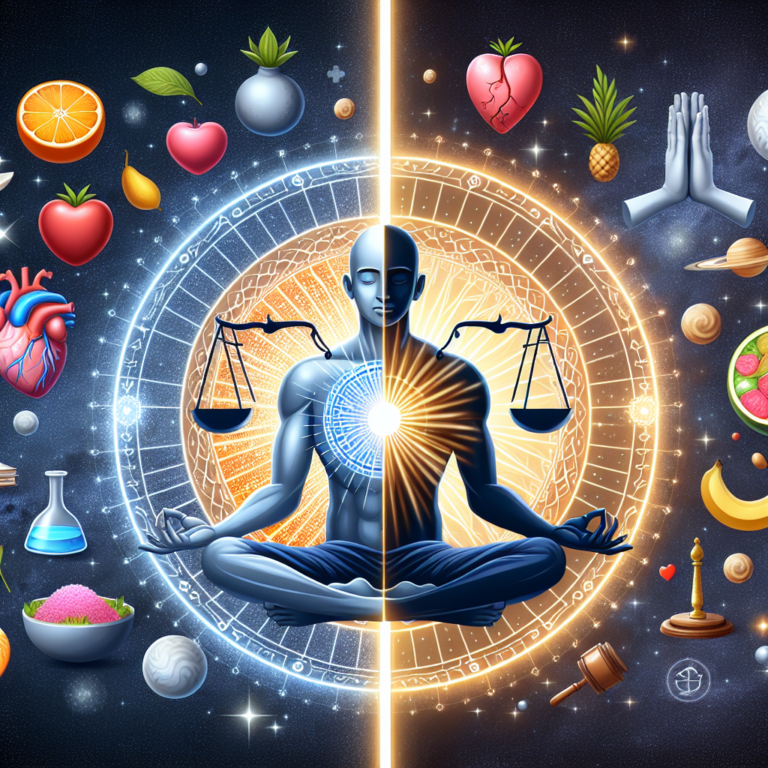Karma Unraveled: 7 Common Misconceptions Explained
Karma is a concept steeped in mystique and spiritual significance. Originating from ancient Indian religions, particularly Hinduism and Buddhism, karma is often interpreted as the universal law of cause and effect. It suggests that every action has consequences, shaping not only our current life but also our future. Nevertheless, a myriad of misconceptions surrounding karma can distort its true meaning. In this article, we will explore seven common misconceptions about karma, unraveling the complexities of this enthralling concept.
1. Karma is a Punishment System
One of the most prevalent misconceptions about karma is that it operates solely as a system of punishment. Many people interpret karma as something that punishes individuals for their misdeeds. However, karma is not inherently punitive; it simply reflects the consequences of one’s actions. Positive actions can yield uplifting outcomes, while negative actions may lead to unfavorable consequences. Rather than being a moralistic retribution, karma serves as a natural feedback mechanism, allowing individuals to learn and grow from their experiences.
2. Karma is Immediate
Another common misunderstanding is the belief that karma manifests instantly. Some individuals expect that if they perform a good deed, they will see immediate positive results. Conversely, they fear that wrongful actions will lead to immediate retribution. In reality, the effects of karma can be delayed, unfolding over days, months, or even multiple lifetimes. This complexity challenges the simplistic view of karma as an instant tit-for-tat response, emphasizing the long-term nature of karmic cycles.
3. Karma is Determined by Intention Alone
Many people think that intention alone determines karmic outcomes. While intention holds crucial weight—for instance, compassionate actions driven by genuine goodwill tend to generate positive karma—actions themselves play a significant role, too. It is important to remember that good intentions can lead to negative outcomes due to unforeseen circumstances. Therefore, a balance of intention and action should be considered when evaluating karmic repercussions.
4. Karma Applies Only to the Individual
A prevalent notion is that karma only affects individuals and their personal actions. However, karma operates within the context of interconnectedness. This means that collective actions, such as those of a community or society, can create shared karmic consequences. The suffering caused by environmental neglect or social injustice does not impact individuals solely; it reverberates through societies, enduring in collective karma. Understanding this interconnectedness can enhance empathy and responsibility towards one another.
5. Karma is Static and Unchanging
Some people perceive karma as a fixed concept—something that, once accumulated, cannot be altered. This notion undermines the dynamic nature of karma. Karma is indeed malleable and can evolve over time. Even if an individual faces negative karmic consequences due to past actions, they can create positive karma through present actions and intentions. This underscores the transformative aspect of karma, reminding us that the power to change lies within each individual’s hands.
6. Karma is Only About Morality
The misconception that karma strictly pertains to morality reigns among many. While moral decisions indeed play a substantial role in shaping one’s karma, the concept extends beyond simplistic notions of right and wrong. Karma encompasses emotional, physical, and spiritual dimensions. It is about understanding the intricate web of interactions and impact one has on self and others. Therefore, empathy, compassion, and self-awareness are integral to comprehending karma holistically.
7. Karma is a Religious Concept
While karma is often associated with religious traditions, particularly Hinduism and Buddhism, it transcends religious boundaries. The concept can resonate with anyone, regardless of spiritual beliefs. Many secular philosophies embrace the idea that actions have consequences, emphasizing personal accountability and ethical behavior. Thus, karma can serve as a universal principle of life that encourages individuals to reflect on their actions and strive for positive change.
Conclusion
Karma is a multifaceted concept that extends beyond its common misconceptions. By understanding the nuances of karma—recognizing it as a natural law of cause and effect, considering both intention and action, acknowledging interconnectedness, and realizing its dynamic nature—we can appreciate its profound impact on our lives. Building a mindful approach to our actions can lead to positive change within ourselves and the world around us, transforming the way we navigate our existence.
Frequently Asked Questions (FAQs)
Q1: How does karma affect my future?
A1: Karma influences your future by shaping your experiences based on your past actions. Positive actions can lead to positive outcomes, while negative actions can result in challenges. Understanding and cultivating good karma encourages personal growth and better life choices.
Q2: Can I change my karma?
A2: Yes, you can change your karma. While past actions may create specific karmic patterns, present actions and intentions can generate new karma. Engaging in positive deeds and cultivating positive intentions can transform your karmic trajectory.
Q3: Is karma the same as fate?
A3: No, karma and fate are distinct concepts. Karma refers to the law of cause and effect concerning actions and their repercussions. Fate, on the other hand, often implies a predetermined course of events, including factors outside one’s control. Karma allows for personal agency, while fate may suggest a lack of it.
Q4: How does karma play a role in relationships?
A4: Karma can significantly influence relationships. Your actions and intentions towards others create a karmic dynamic within your relationships. Positive interactions foster healthy connections, while negative behaviors can lead to conflict and misunderstanding. Building good karma can enhance relationship quality.
Q5: Can animals accumulate karma?
A5: Yes, many spiritual traditions believe that all sentient beings can accumulate karma based on their actions. This emphasizes the interconnectedness of all life and promotes compassion towards animals and the environment.
Q6: Are there negative consequences of thinking too much about karma?
A6: Over-fixating on karma can lead to anxiety and guilt, especially if individuals feel they are being constantly judged by their actions. It is essential to approach karma as a guide for growth rather than a rigid framework of punishment, encouraging self-compassion instead of self-judgment.
Q7: How can I cultivate good karma in my daily life?
A7: Cultivating good karma involves mindful action. Practicing kindness, compassion, forgiveness, and self-awareness in your everyday interactions can create positive energy. Additionally, volunteering, helping others, and taking responsibility for your actions can contribute to positive karmic accumulation.
Engaging with the concept of karma can serve as a powerful catalyst for personal transformation, enriching our lives with understanding, compassion, and growth.
Of course! What kind of prompt are you looking for? It could be for writing, drawing, brainstorming ideas, or something else entirely. Please provide a bit more detail so I can assist you better!, #Karma #Unraveled #Common #Misconceptions #Explained, #Karma #Unraveled #Common #Misconceptions #Explained, 1736680895, karma-unraveled-7-common-misconceptions-explained





